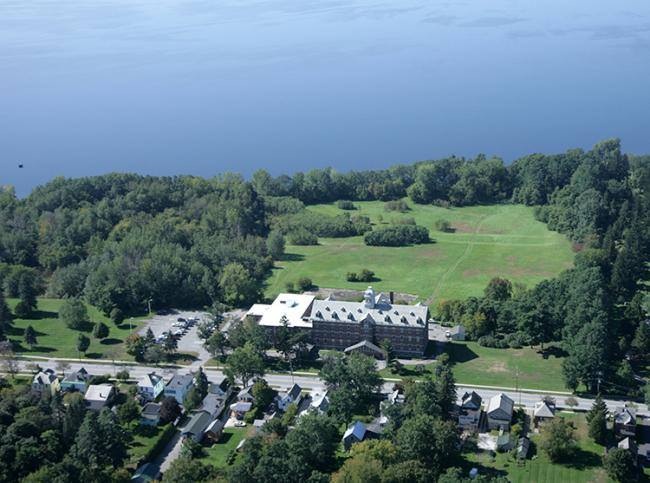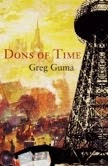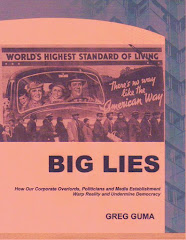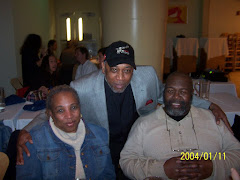 The youngest of Pacifica Radio’s five sister stations, WPFW, was launched in 1977 as a source of alternative programming in the nation’s capital. But the approach differed from the older stations. Although news and public affairs were part of the mix, most of the airtime was devoted to music. Its mission statement, while acknowledging the overarching purposes of the Pacifica Foundation, reflected this local priority.
The youngest of Pacifica Radio’s five sister stations, WPFW, was launched in 1977 as a source of alternative programming in the nation’s capital. But the approach differed from the older stations. Although news and public affairs were part of the mix, most of the airtime was devoted to music. Its mission statement, while acknowledging the overarching purposes of the Pacifica Foundation, reflected this local priority.“Jazz, a major American art form which grows from the African American experience, will be the major music programming,” it announced. “WPFW will act as archivist, educator, and entertainer on behalf of this under served national culture resource.” Over the years it had become one of the leading jazz stations in the country, along the way adding blues, reggae, hip hop, world music and other forms that reflected the evolving taste of its primarily African American audience.
My guide to the Washington, DC media scene was Sam Husseini, the journalist and activist who had introduced me to the DC Radio Coop during my first week on the job. Sam had chaired the Local Advisory Board for WPFW during the struggle for control of the network. Prior to the National Board’s attempted power grab in 1999, these boards had appointed PNB members. At that point Dave Adelson and others filed a lawsuit alleging illegal bylaws changes and unfair labor practices. The suit was settled in late 2001.
Four year later, Sam wasn’t pleased with the way things were going, either locally or nationally. Bessie Wash, the former WPFW General Manager who had helped stage the infamous “Christmas Coup” as Executive Director, was long gone. But Sam felt that her successor, Dan Coughlin, had appeased local management and let the network drift. Lou Hankins, Wash’s controversial replacement as GM of the DC station, known for not returning phone calls, was also history. But his successor Tony Regusters, a former press secretary for California Democratic congresswoman Maxine Waters, had recently been replaced by Ron Pinchback, a former program director who seemed less than eager to rock the boat and just as capable as Hankins of ignoring calls, e-mails and input he didn’t want to receive.
A week earlier, during a staff teleconference, Ron had been cool to the latest national programming initiatives, a daily newscast in Spanish and a series of specials on the impacts of Hurricane Katrina. WPFW didn’t have a significant Latino audience, he explained, and accepting funds from an outside group to produce a “town hall” broadcast on Katrina would “set a precedent.” His approach was to avoid outright opposition, but raise enough questions to have the decision postponed – until either his concerns were addressed or it was too late to preempt local programming. “I’ll be blunt,” he would often say, then proceed to be anything but that.
Sam set up appointments with a variety of local progressives. At Plymouth Congregational Church, Greyland Hagler argued for programs that addressed spiritual issues. “We have abdicated this whole area to the Right,” he said. “We have to open the door to spiritual discussion and real dialogue that allows for disagreement. To embrace a larger audience we have to stop talking to ourselves.”
Journalist Adam Shapiro suggested staging “international town halls” on Iraq and labor solidarity, virtual meetings that used new technology and collaborations with colleges to build bridges between communities in very different cultures. Pacifica had the advantage of existing outside the mainstream power structure, he argued, and could become a vehicle for serious examination of underlying economic and cultural conditions.
At the National Press Club we sat down with Russell Mokhiber, editor of the Corporate Crime Reporter and until recently host of a WPFW show called “Challenging Corporate Power.” A seasoned journalist who knew how to put Washington’s talking heads on the spot, he was virtually the only Pacifica broadcaster who showed up at White House briefings to ask tough, timely questions.
When Sam chaired the WPFW station board, it had called for precisely that – attending key media events to hold national and local officials accountable. In an essay published several months after my visit, he argued that if Pacifica reporters had regularly attended White House, State Department or Pentagon briefings, they might have exposed the false claims for the Iraq war before the invasion. “Had Pacifica had someone effectively covering Homeland Security issues,” he asked, “could that not have highlighted the vulnerability of the levees in New Orleans before Katrina hit? When progressive forces don't set up the structures necessary to avert disaster, should we really be surprised when it strikes and the flood waters – and death – come?”
Sam wanted Pacifica to go beyond cheap shots about the Bush regime and instead provide information with the potential to change hearts and minds. Harking back Lew Hill’s original vision, he imagined a network that encouraged open discussion, one that invited various advocates to air their differences. “The worst elements of all should be exposed,” he wrote, “the best aspect of each should proliferate. As it is, too often advocates of each of various ‘schools’ undermine each other behind the scenes.” Locally, he envisioned WPFW helping people to organize and providing training for new talent.
Instead, however, Mokhiber’s show had been regularly preempted and ultimately canceled, while the DC Radio Coop, an innovative project attracting and training younger people, was essentially purged for disrupting the complacent station atmosphere. As we sat in the Press Club watching reporters scurry by with their latest finds, the two journalists urged me to make Pacifica a serious player in the DC media circus. But I sensed their pessimism that it would actually happen.
Their analysis was that current programmers, many of them put in place by the “pre-revolution” management, clung fiercely to the on-air “real estate” they’d claimed and worked closely with the current management to resist change. Some local board members were satisfied with the status quo, others knew Pacifica was missing the mark but hesitated to act.
Next: Mixed Messages at WPFW































3 comments:
Thank you for your articles. This series is fascinating to read and can be a real contribution to the institution.
Two points of clarification. First, you characterized the former Pacifica Foundation Board of Directors as making a power grab. Actually, like every other Board of Directors in the non-profit world, only the Pacifica Board had legal authority to run the network. The didn't have to "grab" any power, but they did encounter resistance when they attempted to use their power. I think that's more accurate.
Since it's launch in the late 1940's, the Board of Directors had all legal control of this network and it's growing list of radio stations. In the 1990's, with five independent stations and a mandate to make Pacifica more relevant, these Directors were making a serious attempt to implement a strategic plan that took about 20 years to formalize. This was an attempt to make the radio network greater than the sum of its parts.
Since the 1970's, the staff and many directors had hoped that Pacifica would expand and increase it's national relevancy and operate more professionally, while still cherishing the free speech, local community interaction and the independent spirit that had always been the Pacifica mission. The hopeful opining for improvement that Sam and Mokhiber voiced in your article were, in fact, key components of the direction that the Foundation was headed, prior to the disruptive and unusually aggressive Adelson/Spooner/Robinson lawsuits.
So I think it's important to correct your statement about how the National Board's "attempted power grab in 1999." That's the same slogan used by the Plaintiffs, but Pacifica never had it's day in Court and the attorneys and staff all say that the lawsuits were fundamentally flawed. The record shows that the Board of Directors were entitled to run the organization, make key staff changes and steer the ship. They had the legal power, but in this situation overlapping self-interests by a vocal minority of staff, former programmers and some unofficial listener groups a real coup if you will.
On the second point, the local board members never, in the history of the organization, appointed the Board of Directors. For decades the local board members understood their role as making nominations to national Board, but they had no authority to appoint or seat the new Directors. The national Board Members would vote on nominees by secret ballot at their Board meetings. Many of the local board nominations were, in fact, elected to the Board, but some were not. In addition, at various points in our history, the Board elected At Large Members who had not come from any local board nomination. These are both very common practices in non-profit organizations, not controversial and certainly not illegal.
Having researched the corporate documents, it is my view that the bylaws change was both sound and completely proper. It was a simple clarification of the legal relationship between the Board of the Directors and the local station advisory boards. It also enabled the Board to draft a few more At Large members, people who had the professional background to implement the large scale strategic plans which had been approved by scores of previous Board members and staff. To this day, the national Board is in dire need of such qualified persons!
By chasing and "removing" the key Defendants from the Pacifica Foundation, a real power grab took place, a hostile takeover if you will. That, in my opinion, was the real Coup. The victors rewrote the bylaws of the organization from the bottom up and radically changed the structure of Pacifica governance in such a way that the "control" of the network now seems literally impossible by any body, or any authority. Instead, the status quo reigns, volunteer Board members are stretched too thin. election are held in which very few listeners even understand what or who they are voting for, and we have the mess we're in now.
Today, many of the historical documents are buried in unopened boxes, seemingly out of reach to today's Pacifica Board of Directors. I fear that you are inadvertently passing along and giving additional weight to two of the most incendiary myths that have taken root in progressive and media circles across the country. Many people repeat the slogans of the "National Board’s attempted power grab in 1999" and how the local boards previously "appointed PNB members." But these were claims in lawsuits which never even went to trial and which the Defendents strongly denied. I like to remind folks that the presumption of innocence applies to Pacifica as well. Truly, an honest evaluation can only come after a careful reading of the historical documents, most of which are collecting dust in boxes marked "Evidence."
As to how whether this network will ever become a strong presence on the national scene, it does seem like Pacifica is stuck in a timewarp and speaking to the same listeners for the past 30 years. Obviously, that cannot be a winning formula! If the organization had implemented the changes it was seeking, it is possible that Pacifica could have been successful in alerting the larger public to the issues and events which have darkened this nation for the past decade. Pacifica could have been an important counter balance to the mass media.
For example, the former Board had moved the network headquarters to Washington DC, which is afterall the center of political power in the country. They were planning a new building and a national Pacifica museum for WPFW. They were heavily invested in creating and owning and producing important national programs like Democracy Now! and they were poised to rebuild its own Pacifica National News service. All of these projects were abandoned or given away during the "struggle" for listener control and we seem to be giving more of our listerner funds to other organizations and grassroots media project than our own organiation! I see Pacifica as being cannabilized by it's former staff and volunteers. As it turns out, the new structure has been a grave disappointment, costing the network millions of dollars, a decade of time and some very real carnage to the reputation and support base of Pacifica radio. The network has paid a very dear price for the so-called democratic media revolution and, to this listener, it hasn't been worth it. History is written by the those who win wars, but in this case the war isn't so long ago. I feel it's very important to debunk the assumptions along the way. Sorry for the long comment, and thanks again.
Good ol' KPFT listener when I lived in Houston. Good series, Greg.
Didn't Sam Husseini work at FAIR many years ago? I had an ongoing correspondence with him (before internet) years ago, about some issue (forget what).
Cheers.
Nalini Lasiewicz (musiced) was a voracious supporter of the board which I helped challenge as part of the Free Pacifica movement. She raised many questions and I exchanged e-mails with her often when I first got involved.
Eventually, I realized that she would never move from unqualified support of the board and relentless (seemingly rational) questioning of the opposing movement.
There were many reasons to oppose the Board at that time. There was the memo between board members which calmly discussed selling one or more “units,” ie stations. There was the lock out and armed guards who took over KPFA. . .
The fact is, the old board spent Pacifica’s reserves, which had been accumulated over many years, as they fought to keep themselves in control. They may have had some good ideas. But, you can’t run Pacifica as a business that makes top down decisions without buy in from listeners, and both paid and unpaid staff. To do so, was bad management by the board, bad faith with those who built the network over the decades and a tragedy as we go forward now without the resources they squandered.
Adrienne Lauby
Post a Comment